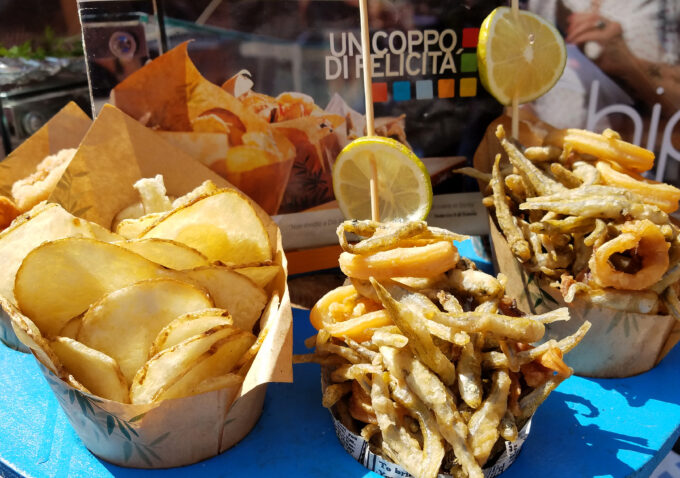
Street food in Palermo, Sicily.
Embarking on international trips is often an exhilarating experience that comes with its fair share of surprises. However, you don’t want to experience surprises when it comes to your health. The unforeseen issues of food and waterborne illnesses can quickly dampen enthusiasm for even the most adventurous of travelers. Learning important food and water precautions when traveling abroad can make a significant difference in your overall experience, helping you stay healthy and enjoy your journey to the fullest.
Avoiding Raw or Undercooked Foods
It’s crucial to ensure that you only eat thoroughly cooked meat and seafood so that you know that harmful bacteria aren’t present in it. When eating out, avoid dishes like sushi, rare steaks, or ceviche, which often contain raw or undercooked ingredients. Street food can be a gastronomic delight, but the lack of proper storage, proper food handling, or insufficient cooking temperatures can put you at risk.
Opting for Hot Foods
freshly cooked foods served hot are typically safer than cold foods, as heat kills most bacteria and parasites. Temperature doesn’t only refer to heat but also the time from preparation to consumption. The less time food spends sitting in the temperature danger zone after cooking, the lower the chance it has of getting contaminants. So it’s not just about ordering hot dishes but also making sure they’re fresh and have not been prepared a long time in advance.
Drinking Safe Water
Maintaining hydration is crucial, but not all water sources are the same; some could even put your health at risk. Tap water in unfamiliar regions may contain bacteria or viruses that your body can’t handle well. It’s often safer to stick to bottled water. This is one of the best ways to prevent salmonella. Ensure the bottle doesn’t have a broken seal, and use this water for brushing your teeth as well.
Being Cautious With Seafood
Checking for seafood freshness is a key food precaution when traveling abroad. Always consume seafood, especially shellfish, only from reputable outlets where freshness is visible. It should have a mild smell, not an overly strong, fishy odor. The whole fish should have clear, not cloudy, eyes. Avoid seafood that has been sitting at room temperature for extended periods.
Getting Vaccinations and Traveler’s Health Insurance
Before embarking on your journey, research the common diseases of the country you’re visiting and get the necessary vaccinations. Having traveler’s health insurance can also be beneficial. It provides financial protection in case you fall ill during your trip and need medical assistance. Adding this precaution to the list of travel mistakes you must avoid will help you enjoy a more positive experience.
Preparing for travel must extend beyond packing bags and making itinerary plans. Taking these precautions can ensure that you remain healthy and ready to explore, turning your travel dreams into a reality without the worry of unexpected health issues.